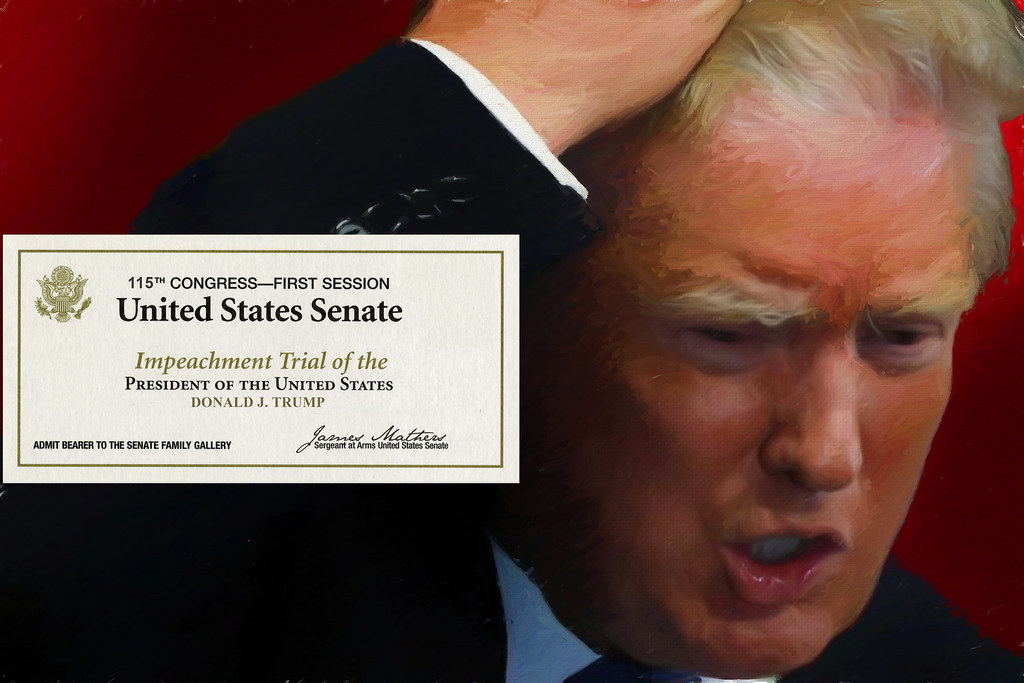

It’s official. Speaker Nancy Pelosi has formally announced an investigation of President Trump. This is in response to conversations the US president held with the Ukrainian president, Volodymyr Zelensky, in which Trump allegedly pushed for the investigation of the son of Democrat Presidential nominee Joe Biden. A simple majority in the Democrat-held House of Representatives would be needed to impeach Trump. It would then go to the Senate for a trial, where a two-thirds vote would be needed to convict. Given that the Senate is Republican-held, however, it would be unlikely that Trump would be convicted – Bill Clinton was similarly impeached without conviction in the 1990s.
Given this low probability of conviction, the question is whether or not the impeachment process will impact markets. We think there are two ways it could:
This article is only available to Macro Hive subscribers. Sign-up to receive world-class macro analysis with a daily curated newsletter, podcast, original content from award-winning researchers, cross market strategy, equity insights, trade ideas, crypto flow frameworks, academic paper summaries, explanation and analysis of market-moving events, community investor chat room, and more.
It’s official. Speaker Nancy Pelosi has formally announced an investigation of President Trump. This is in response to conversations the US president held with the Ukrainian president, Volodymyr Zelensky, in which Trump allegedly pushed for the investigation of the son of Democrat Presidential nominee Joe Biden. A simple majority in the Democrat-held House of Representatives would be needed to impeach Trump. It would then go to the Senate for a trial, where a two-thirds vote would be needed to convict. Given that the Senate is Republican-held, however, it would be unlikely that Trump would be convicted – Bill Clinton was similarly impeached without conviction in the 1990s.
Given this low probability of conviction, the question is whether or not the impeachment process will impact markets. We think there are two ways it could:
1. It increases political and economic uncertainty. Markets have been affected by the up-and-downs of the trade war drama with China. The uncertainty this has engendered has seen a stronger dollar, weaker stocks, and lower rates. With the odds of impeachment on the rise, we’ve also seen a concomitant rise in policy uncertainty too (see Chart 1). Yesterday, the day of the Pelosi’s announcement saw weaker stocks and lower rates. Depending on to what extent the impeachment hearings lead to more erratic behaviour by the President or distract him from current geopolitical issues like Saudi-Iran, we could see uncertainty continue to rise. This would support the dollar and be negative for risk markets.
2. Democrat Presidential nominee Warren’s odds of winning the primary could rise. One of the ironies of the impeachment process is that it could attract negative publicity around Joe Biden. The fact that Biden’s son was on the board of a Ukrainian gas company in itself could draw criticism from the public. If Biden supporters look elsewhere then the question is whether they turn to another moderate candidate or go more progressive. If the latter, that might well favour Elizabeth Warren who has made impressive gains in recent months. (see Chart 2). Equity markets are likely to view a left-leaning candidate unfavourably. So at the margin, the declining support for Biden could be seen as risk negative.
We’re still at the very early stages of the impeachment process, so much could change in the coming weeks. Considering the potential damage to risk markets, though, we’d maintain a defensive position in markets.
Chart 1: US Policy Uncertainty Increasing As Impeachment Odds Rise
Chart 2: Warren Has Been Gaining On Biden
Bilal Hafeez is the Editor of Macro Hive. He spent over twenty years doing research at big banks – JPMorgan, Deutsche Bank, and Nomura, where he had various “Global Head” roles and did FX, rates and cross-markets research. He can be contacted here.